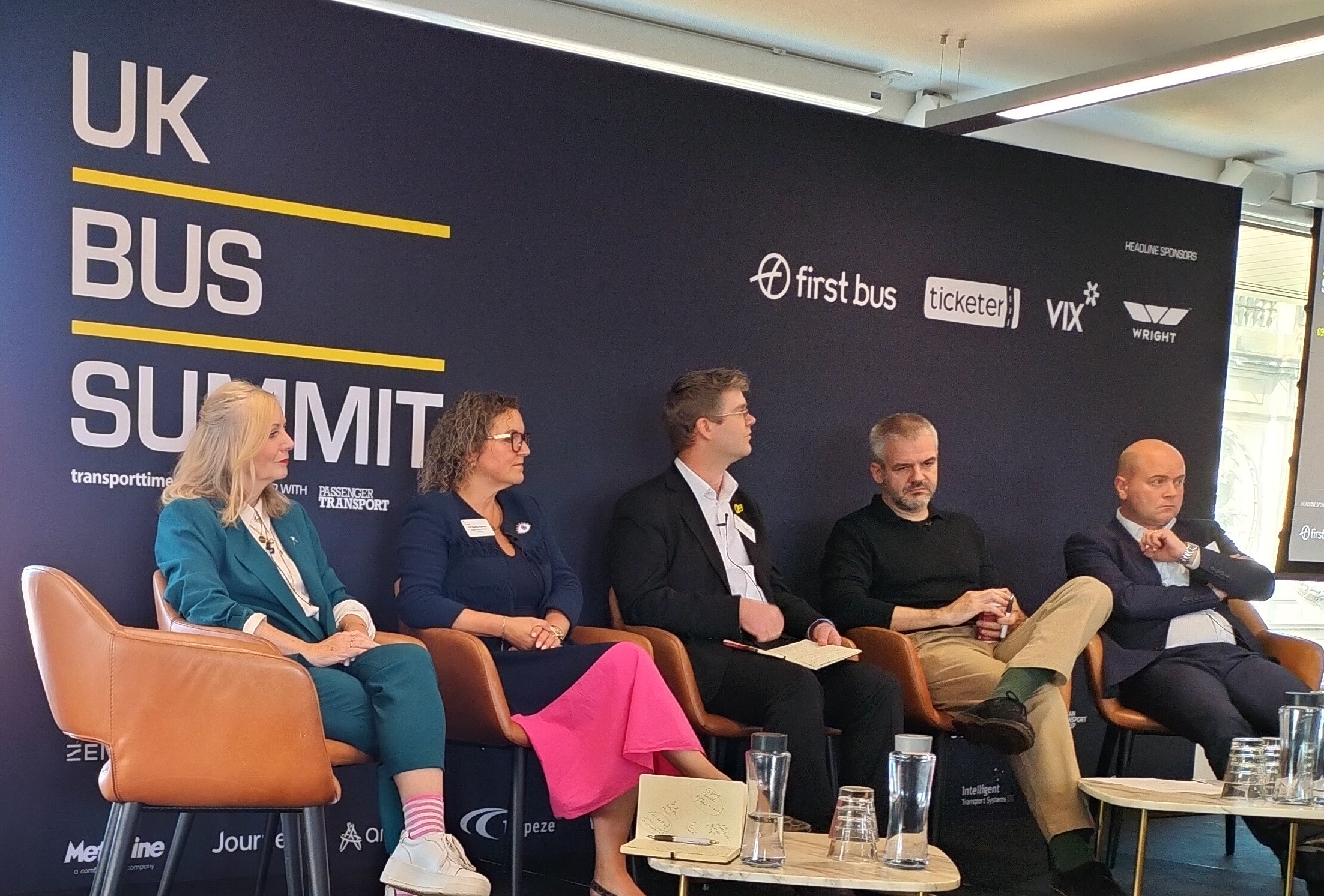This year’s UK Bus Summit held brought experts from across the transport and technology sectors to Manchester to explore how local franchising schemes, electrification and digital innovation can reshape the sector.
Much talked about at last week’s event, organised by Transport Times, was the proposed Bus Services Bill currently going through parliament that will allow local authorities to set the routes, frequencies, and standards for bus services, rather than private companies.
The bill looks to expand the provision of bus services up and down the country to cater to local needs, based on London’s bus service model.
In a recorded message, Local Transport Minister, Simon Lightwood, told the summit the government is committed to shaping better bus networks and that the bus services bill will do this.
He added: “The bill will revolutionise the bus network in the largest overhaul to local transport powers in 40 years.
“It will also make the network safer and more accessible.
“Along with huge amounts of recent funding to support our bus services, this new government has a plan to deliver better buses across the country.
“We can finally look forward to a bus network that works – one built with local people in mind.”
Unsurprisingly, the example of Transport for Greater Manchester’s (TfGM) newly created Bee Network was much talked about.
Initially unveiled in 2018, the project aims to create a London-style transport system, to encourage more people to take public transport.
Mayor of Greater Manchester, Andy Burnham, told the summit that with the introduction of the Bee Network, the area now has a simplified but sophisticated bus network.

He said: “It is under public control and allows integration with the rest of the transport system.”
Burnham pointed out that under the Bee Network, the decline in patronage has been reversed and services have improved.
He added: “In terms of punctuality, services are now routinely above 80 per cent, up from 69 per cent before franchising.
“We are prioritising safety on the system now. Greater control means you can also dictate the process of decarbonisation.”
Burnham said that buses in Greater Manchester are now quieter and cleaner than before and that TfGM has worked with the likes of British manufacturers Alexander Dennis, Wrightbus and Mellor Bus to introduce more zero-emission vehicles.
Paul Thomas,Group Chief Technology Officerat Wrightbus, also told the summit that the manufacturer was working with various local authorities and regions to supply a range of zero-emission buses.
Meanwhile, Leon Daniels OBE, Chair, Advisory Board, Bus Centre of Excellence, commented that fiscal devolution is critical for a successful public transport system, highlighting that investment benefits various areas of need – social, economic and business.
Mayor of West Yorkshire Tracy Brabin, currently looking to introduce the franchised Weaver Network, said for too long, her region has suffered froma disjointed, confusing, and increasinglyhard to navigate public transport system.
She added: The Weaver Network is a fresh, modern identity for transport in West Yorkshire, reflecting our greater powers through devolution, as well as our ongoing work to bring buses back under public control and create a fully-integrated mass transit network.”
Oliver Coppard, Mayor of South Yorkshire, told attendees that the new public transport franchising brand in South Yorkshire is due to be unveiled next year, with franchising due to go live in September 2027.
He said: “We need a reliable, accessible transport network that helps people get around quickly and easily.”
Liam Robinson, leader of Liverpool City Council, joked that his city’s proposed bus franchising scheme could be called the ‘The A Network’ to rival Manchester’s Bee Network.
He said: “Franchising can make the industry look more attractive to potential employees, and show that it can provide secure, well paid employment.
“Social value should also be embedded, and the bus companies involved have got to be a signatories to good standards.”

Meanwhile, Thomas Ableman, from consultancy Freewheeling, told the summit how the Hope Valley in the Peak District could be transformed by the creation of a Switzerland-style public transport system.
Also, Bradley Fox, Director of EV Fleet for the UK and the Nordics at Zenobē, said his company has seen firsthand how smart charging, battery optimisation and real-time data are transforming bus operations.
He added: “Emissions are being cut while performance and passenger experience are enhanced.”
Miki Szikszai, CEO, Snapper Services, said the Steve Jobs quote ‘You’ve got to start with the customer experience and work backwards’ to the technology was a true reflection of modern bus operations.
In addition, Sara Gilmore, Partner at Addleshaw Goddard, gave attendees a comprehensive legal analysis of franchising.
She said: “The Bill gives authorities greater enforcement powers to tackle fare evasion and anti-social behaviour by making byelaws, which should help to improve safety on the transport network.”
On the topic of safety for women and girls on public transport, Kayleigh Ingham, Chair of Women in Bus and Coach, said franchising could be a “truly transformational” moment.
A National Police Chiefs’ Council (NPCC) report in July 2024 stated that more than one million violence against women and girls (VAWG)-related crimes were recorded in England and Wales in 2022/23.
She said: “Let’s ensure franchising is truly transformative, but let’s not wait to pull together as an industry.
“We can collaborate more, and with our existing enhanced partnerships, we can focus on both diversity and VAWG to drive impactful change now.
“Bringing more women into bus will reap rewards. And with women making up the majority of bus passengers, ensuring women and girls feel safe is essential to the future of our industry.”
BACK TO ALL NEWS
